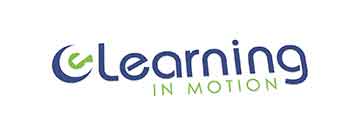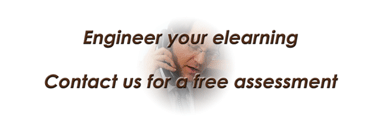During my work as an instructional designer for a medical program, there were always ideas on how to bring many activities that tested a medical student’s clinical skills to an eLearning environment. Assessing clinical skills is an essential component of medical education, and the development of eLearning technology has revolutionized how medical students learn and are evaluated. eLearning is the use of electronic technology, such as computers, mobile devices, or the internet, to deliver educational content. In this essay, we will discuss how eLearning can be employed to assess the clinical skills of medical students.
The first step in using eLearning to assess clinical skills is to identify the specific skills that need to be evaluated. Clinical skills include a wide range of abilities, from performing a physical examination to communicating with patients and interpreting test results. Once the skills are identified, eLearning tools can be used to teach and evaluate these skills.
One way to employ eLearning for clinical skill assessment is to use virtual patient simulations. Virtual patient simulations allow students to interact with a computerized patient, providing them with the opportunity to practice clinical skills in a controlled environment. These simulations can be designed to mimic real-life scenarios and allow students to learn from their mistakes without putting real patients at risk. Simulations can also be used to assess students’ ability to identify and manage complex medical cases. Artificial Intelligence has made many of these simulations interactive, many companies offer this service to medical schools, for first and second year students. This brings in a tremendous saving of reseources since you will not hire humans for these students, and using those resources for more advanced students.
Another way to employ eLearning for clinical skill assessment is to use video-based assessments. Video-based assessments allow students to record themselves performing a clinical skill and then submit the video for evaluation by an instructor. Video-based assessments can be used to assess a wide range of skills, from physical examinations to communication skills. The instructor can provide feedback to the student based on their performance, highlighting areas for improvement and providing guidance on how to improve their skills.
eLearning can also be used to provide students with immediate feedback on their performance. Immediate feedback is essential for learning, as it allows students to identify their mistakes and make corrections in real-time. Online quizzes and assessments can be used to provide immediate feedback on a student’s understanding of a topic, while simulation-based assessments can provide immediate feedback on their clinical skills.
One of the advantages of eLearning for clinical skill assessment is the ability to track and monitor student progress over time. Learning management systems (LMS) can be used to track student progress and identify areas where additional support may be needed. LMS systems can also be used to provide students with personalized learning pathways, allowing them to focus on areas where they need additional support.
Another advantage of eLearning for clinical skill assessment is the ability to provide students with self-directed learning opportunities. Self-directed learning allows students to take control of their learning, setting their own pace and focusing on areas that interest them. eLearning tools, such as online modules and interactive simulations, can be used to provide students with self-directed learning opportunities.
Finally, eLearning can be used to provide students with a more immersive learning experience. Immersive learning experiences use technology, such as virtual and augmented reality, to create realistic and engaging learning environments. Immersive learning experiences can be used to simulate complex medical scenarios, allowing students to develop their clinical skills in a safe and controlled environment.
It is clear that eLearning technology provides an opportunity to assess clinical skills in medical students in a more efficient and effective way. Artificial Intelligence is also disrupting the way we test clinical skills of medical students (it is common to use AI standard patients for this.) By using virtual patient simulations, video-based assessments, immediate feedback, learning management systems, self-directed learning opportunities, and immersive learning experiences, medical schools can assess their students’ clinical skills more comprehensively. But you need a team to develop these programs, and a good plan. With the use of eLearning, medical students can develop their clinical skills in a safe, controlled environment, providing them with the skills they need to succeed in their medical careers.
Please, share this post. Like this post. Leave a comment below. Thank you.


